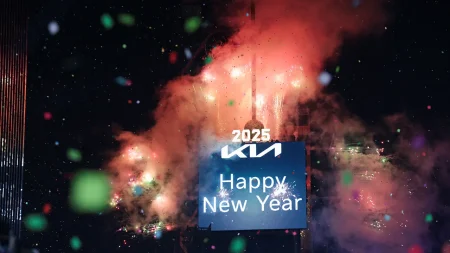A Pivotal Moment in History
In rare instances throughout human history, we find ourselves standing at a crossroads where the path we choose will resonate through generations to come. This is one of those moments. Like the calm before a storm, there’s a palpable sense that we are witnessing the convergence of significant forces—technological revolution, social transformation, environmental challenges, and geopolitical realignment—that will fundamentally reshape our collective future. These pivotal junctures often go unrecognized by many living through them, yet in retrospect, they clearly delineate the before and after of human progress. Whether it’s the birth of democracy in ancient Athens, the Renaissance awakening, the Industrial Revolution, or the digital dawn of the late 20th century, these watershed moments represent both tremendous opportunity and profound responsibility.
The technological acceleration we’re experiencing today is unprecedented in its scope and pace. Artificial intelligence, quantum computing, biotechnology, and renewable energy innovations are not merely improving existing systems—they’re creating entirely new possibilities for human civilization. We stand at the brink of solving previously insurmountable challenges: diseases considered incurable, energy limitations that have constrained growth, and knowledge barriers that have separated cultures. Yet this same technological power brings existential questions about human identity, purpose, and values. As machines become increasingly capable of tasks once exclusively human, we must redefine what makes our contribution unique and irreplaceable. This transformation isn’t just changing what we can do but challenging us to reconsider who we are and what we aspire to become as a species.
Socially and politically, old paradigms are dissolving as new ones struggle to emerge. Traditional institutions and power structures face legitimacy crises worldwide, while grassroots movements harness digital connectivity to demand more equitable and sustainable systems. The democratization of information has empowered individuals but also created echo chambers that fragment our shared reality. Global challenges—from climate change to pandemics—demonstrate both our profound interconnectedness and the inadequacy of nationalist approaches to planetary-scale problems. This tension between interconnection and division defines our current moment: we have never been more globally integrated through commerce, communication, and culture, yet in many societies, polarization reaches dangerous levels. How we navigate this paradox—finding unity without demanding uniformity—may determine whether this historical inflection point leads toward renaissance or regression.
The environmental dimensions of this historical moment cannot be overstated. We have altered Earth’s systems so fundamentally that scientists have declared a new geological epoch—the Anthropocene—defined by human impact. Climate patterns that remained relatively stable throughout human civilization are changing at accelerating rates, threatening food security, coastal populations, and biodiversity worldwide. Yet alongside this sobering reality, a profound shift in consciousness is occurring. Regenerative approaches to agriculture, circular economic models, and renewable energy systems demonstrate viable alternatives to extractive practices. Indigenous wisdom about human-nature relationships gains renewed respect as we recognize the limitations of industrial-age thinking. This environmental awakening represents perhaps the most significant value shift since the Enlightenment—a move from seeing nature as a resource to be exploited toward understanding ourselves as part of an interdependent living system that must be preserved and regenerated.
Economically, we stand at a similar inflection point between paradigms. The industrial capitalism that drove unprecedented material prosperity now confronts planetary boundaries and fails to deliver wellbeing for billions despite abundant global resources. New economic thinking challenges assumptions about growth, productivity, and progress that have dominated for centuries. Questions about work itself—its meaning, necessity, and distribution in an age of automation—force us to reconsider fundamental social contracts. Experiments with universal basic income, worker ownership, stakeholder capitalism, and purpose-driven enterprise suggest possible paths forward. This economic transformation intertwines with technological and environmental shifts, creating the potential for systems that better align human flourishing with planetary health. Whether we achieve this alignment or remain trapped in outdated economic paradigms may determine whether this historical moment produces widespread prosperity or deepening inequality.
What makes this truly “one of those moments in history” is not any single transformation but their convergence and acceleration. Technology, society, environment, and economy are all undergoing revolutionary change simultaneously, creating feedback loops that amplify disruption and opportunity alike. How we respond—individually and collectively—will echo through generations. Will we succumb to fear, retreat into tribalism, and cling to familiar but inadequate solutions? Or will we summon the wisdom, courage, and imagination to forge new paths appropriate to the challenges and possibilities of this extraordinary time? History suggests that humans are capable of remarkable adaptation and creativity when necessity demands it. The coming decades will reveal whether we can access these capacities at the scale and speed required. For those alive today, this represents both an awesome responsibility and a rare privilege: to participate consciously in one of history’s great turning points, helping to determine which of many possible futures will emerge from this crucial moment of transition.










